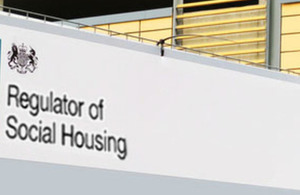Fire safety guidance strengthened for new high-rise homes
- New building regulations to assist fire and rescue services in England
- Changes meet recommendations from Phase One of the Grenfell Tower Inquiry
- Clearer safety standards for external walls of buildings including a ban on the highest risk Metal Composite Materials panels for all new buildings
New improvements to fire safety guidance and building regulations to ensure tall buildings are made safer in England have been introduced today (1 June 2022), as part of a wider package of reforms.
The changes meet recommendations from Phase One of the Grenfell Tower Inquiry and will strengthen the information available to fire and rescue services.
All new residential buildings over 11m will now have to include a Secure Information Box that will give fire and rescue services access to important details about a building in the event of a fire.
New residential developments over 18m will also have to incorporate an Evacuation Alert System to help fire and rescue services inform residents of a change in evacuation strategy, during an incident. This will give fire and rescue services an additional tool to use on the ground, alongside existing methods of evacuation.
It forms part of a wider update to tighten building regulations and provide clearer fire safety rules for the design or construction of residential developments.
Building and Fire Safety Minister Lord Greenhalgh said:
We have introduced the biggest improvements to building safety in a generation, under the Building Safety Act.
These changes will support our tough new regulatory regime – ensuring fire safety measures are incorporated into new high-rise homes and all new residential buildings meet the same safety standards.
It does not end here and I urge the industry act quickly to update their practises in line with these new rules.
The National Fire Chief’s Council (NFCC) Protection and Business Safety Committee Chair, Gavin Tomlinson, said:
NFCC especially welcomes the introduction of emergency evacuation alert systems in new buildings over 18m. We also support the inclusion of Secure Information Boxes in buildings over 11m, which will give fire and rescue services access to important details about a building and its residents in the event of a fire.
On the changes to building regulations, we are encouraged that unsafe MCM PE cladding panels are banned on all buildings and that the government has promised stronger safety standards for the use of combustible materials on external walls.
In addition, the government has today introduced tougher standards for external wall materials on new medium-rise blocks of flats.
The government previously announced a ban on the use of combustible materials in and on the external walls of new blocks of flats over 18m, in England – as well as hospitals, student accommodation and dormitories in boarding schools.
Further regulatory updates, introduced today, will now see this ban extend to new hotels, hostels and boarding houses of this height.
These changes will also ban Metal Composite Material panels with unmodified polyethylene core, known as MCM PE, on all new buildings at any height. This follows research carried out by the government and evidence heard at the Grenfell Tower Inquiry on the serious fire safety risks associated with this material.
New statutory guidance will also be introduced to restrict the combustibility of materials used in and on the external walls of residential buildings, between 11-18m in height.
This will mean that lower risk developments between 11-18m meet necessary safety standards – while allowing designers and developers flexibility to use environmentally friendly materials. It builds on a provision, that the government has already introduced, for sprinkler systems to be installed in new blocks of flats 11m and over, in England.
The move follows an extensive consultation and will ensure that residents of all blocks of flats are and feel safe in their homes.
Other updates to the regulations being put forward will:
- include elements of solar shading devices within the scope of the ban
- amend the list of materials exempt from the ban to include fibre optic cables and insulation materials 300mm from ground level
- update the requirement of the ban to refer to the latest version of the British Standard classification for materials used on high-rise residential buildings
- temporarily exempt cavity trays
- amend the requirements for material change of use in buildings
This comes alongside the government’s ongoing work to ensure homebuilders have clear and comprehensive regulatory framework for the design and development of safe buildings. As part of this, the government has today published an update on its technical review of guidance on building regulations for fire safety – known as Approved Document B – and the evidence supporting it.
The government is implementing changes to the Building Regulation’s guidance, known as Approved Document B, to meet the Phase One recommendations of the Grenfell Tower Inquiry for the provision of Secure Information Boxes and Evacuation Alert Systems. See more information on the Phase One recommendations of the Grenfell Tower Inquiry.
Following a review and consultation, the ban on combustible materials in and on the external walls of buildings, introduced in 2018, will now apply to hotels, hostels and boarding houses – in addition to blocks of flats, hospitals, student accommodation and dormitories in boarding schools.
See the government’s response to its consultation on the review of the ban on the use of combustible materials in and on the external walls of buildings.
See more information on Approved Document B.
See the government’s update on its ongoing work to review of the scientific evidence informing the guidance in Approved Document B. See more information on the government’s call for evidence on this review.
